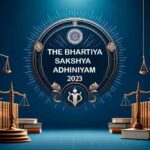Private Medical or Dental Colleges having fundamental rights to carry on their ‘occupation’ but subject to Law and Rules enacted as ‘reasonable restrictions’ on their rights
Civil Appeal 4060 of 2009
Bench: Justice R. Banumathi
Case Brief: The number civil appeals were preferred by the several number of appellants who are the Private Medical and Dental colleges and they have also filed bunch of appeals before the bench, wherein the validity of the provisions of the Statute passed by the State legislature, namely, the ‘Niji Vyavasayik Shikshan Sanstha (Pravesh Ka Viniyaman Avam Shulk Ka Nirdharan) Adhiniyam, 2007 and rules of 2008 and 2009 made thereunder by the State Government. The basic claim of the appellants- Private medical and dental colleges was that being private unaided colleges, the said appellants are having fundamental rights under Article 19 (1)(g) of the Constitution of India to lay down the eligibility criteria, admission and fixation of fees at their own instances and not to be governed by the State by making any law like the Act of 2007 in this connection. However, the High court after considering the facts and constitution provision’s applicability in this case, decided that the Government is permitted to regulate the admissions as well as fee, even of the private unaided education institutions and it is pointed in the impugned judgment that the Article 19(6) of the Constitution of India has saved the impugned provisions as they amount to ‘reasonable restrictions’ imposed on the right of admission and fixation of fee, which otherwise vests with the appellants.
The bench after analysing the various previous judgements and the provisions which are impugned before this bench, and observed that the Apex court earlier gave a recognition of the right to admit the students and a right to set up a reasonable free structure, and treated the said rights are a part of occupation which is the fundamental right under Article 19 (1)(g) of the Constitution of India. Moreover, the bench further observed that the scope of such rights is not absolute, but subject to limitations which would be prescribed, the bench observed such limitations in the form of said Act and Rules. Now, bench decided to consider whether the said restrictions /limitations were ‘reasonable’. Moreover, bench found pointing that the privatization of education resulting in noble occupation which would not permit commercialisation or profiteering and as such educational institutions are to be run on “no profit no loss basis.” The bench as such decided that the impugned provisions may amount to ‘restrictions’ on the right of the appellants for carrying on their ‘occupation’ are clearly ‘reasonable’ and satisfied the test of proportionality. Thus, the validity of the impugned legislation is also affirmed and also the high court’s impugned judgment as well held merited.
Read the Judgement: Modern Dental College & Res.Cen. & Ors. Vs. State of Madhya Pradesh & Ors






